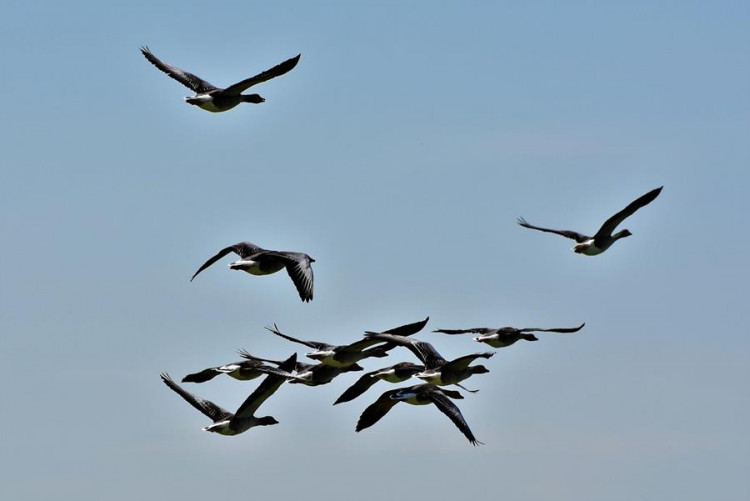The World Organization for Animal Health (OIE) has received many reports of bird flu outbreaks in Asia and Europe in recent days, Reuters reported.
Bird flu, also referred to as avian influenza, is a highly contagious influenza type that affects food-producing birds, pet birds, and wild birds.
Some areas have experienced several birds slaughters and trading restrictions because of previous outbreaks, the report said.
Bird flu is not spread through the consumption of poultry products.
Epidemiologists are also interested because the virus can be transmitted to people. Outbreaks are most common in the autumn, and they are spread by migratory birds.
So far this year, China has documented 21 human illnesses with the H5N6 subtype of avian influenza, more than in the entire year of 2020.
The OIE said on Monday, citing a notification from the South Korean authorities, that an epidemic had been reported at a farm in Chungcheongbuk-do that had approximately 770,000 fowls. All of the animals were slaughtered at the same time.
The OIE also disclosed that people who have been in close contact with infected birds are "at risk for acquiring avian influenza."
Another incident was reported in Asia, where the OIE verified that Japan had reported its first avian influenza infection of the 2021 winter season at a chicken farm in the country's northeast, which corroborated previous statements by the country's agriculture ministry. The H5N8 virus was responsible for this outbreak.
A flock of 7,000 wild birds in Norway's Rogaland region has been infected with H5N1 bird flu, the OIE said.
After a highly pathogenic form of bird flu was discovered in a wild goose near Antwerp, the Belgian authorities declared the country at risk of bird flu, ordering poultry to be kept indoors as of Monday.
This comes after similar moves in France earlier this month and the Netherlands in October.
"At all costs, I must ensure that our poultry is not infected with avian flu," Belgian agriculture minister David Clarinval wrote on Twitter.
"Let's use containment to prevent the kind of damage that our farmers have seen in the past," Clarinval remarked.
In other parts of Europe, after a farm was confirmed to have bird flu in October, Dutch authorities ordered commercial farmers to keep all flocks inside.
In November, France expanded a mandate that poultry flocks be kept indoors. Several outbreaks of the disease have also been documented in Germany.






